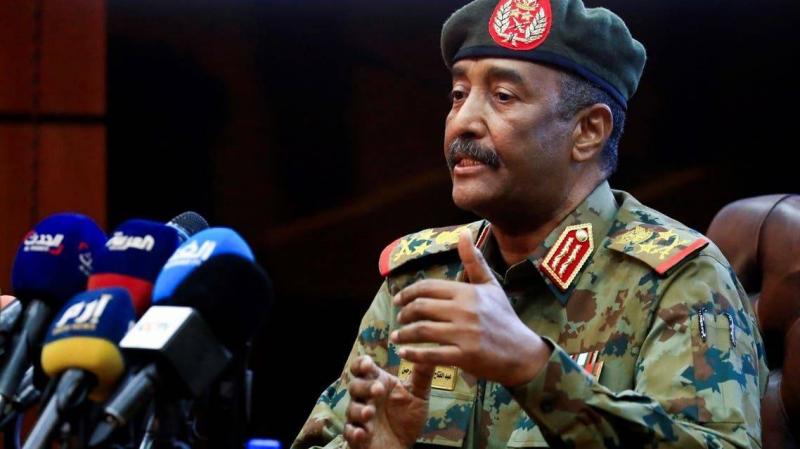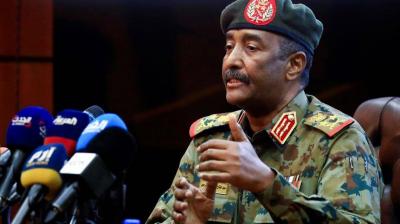With the continuing international warnings about the need to resolve the crisis and the retraction of what the United States and European countries described as a "coup" in Sudan, the Commander-in-Chief of the Sudanese Army, Abdel Fattah al-Burhan, denied that all the exceptional measures taken last Monday were "coup-like." He confirmed today, Saturday, that these measures were taken to "correct the path" of governance in the country and revive the objectives of the revolution.
He added in statements to the Russian news agency Sputnik, "Anyone who thinks this is a coup is not being truthful, because we are in power. If it were a coup, we would have also been changed, but what happened is a correction of the transition process."
**Targeting Hamdok**
In this context, he explained that Abdullah Hamdok's government had failed to address the crises in the country, noting that the removal of the former prime minister from his home was "due to information about a potential targeting of him." He stated, "The government had significant flaws, given the political and social landscape, as the parties involved in the coalition were unable to agree on any pressing issues during this transitional period."
He also confirmed that the government failed to agree on the establishment of the legislative council and the appointment of state governors and even failed to contain the political forces.
It is worth noting that Al-Burhan announced yesterday that consultations are underway to form a new government of technocrats, indicating that a delegation had proposed to Hamdok his return to the premiership. The army chief had announced last Monday the dissolution of the government, the imposition of a state of emergency, and the suspension of some provisions of the constitutional document. Meanwhile, the armed forces carried out a campaign of arrests targeting ministers and leaders in the various parties and the Forces of Freedom and Change.
This came after weeks of tension between the government and the military amid exchanges of accusations and responsibilities for the political and economic crises in the country. Tension heightened further with the attempted coup that took place last September, along with demonstrations that also erupted in the eastern parts of the country against the government.




